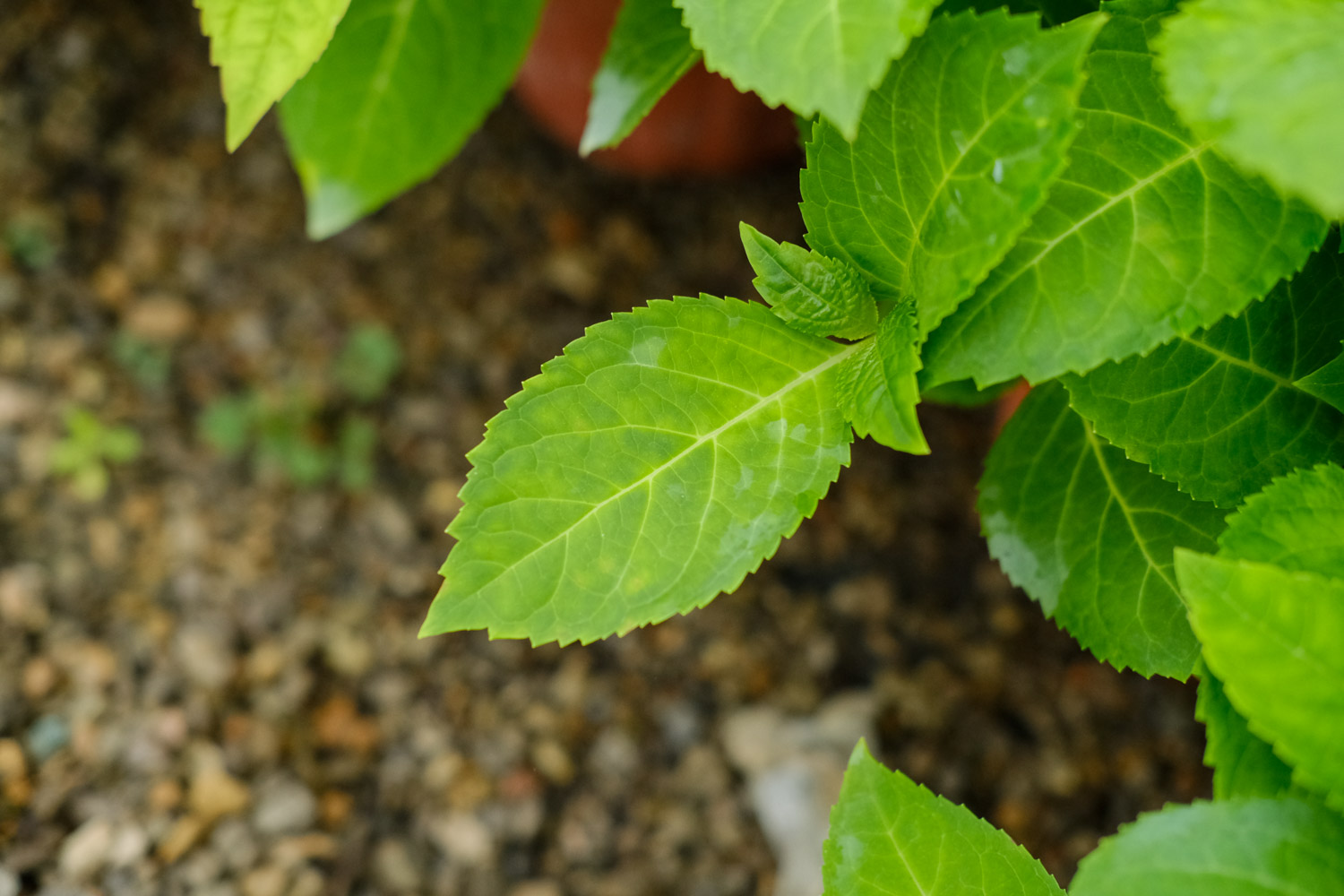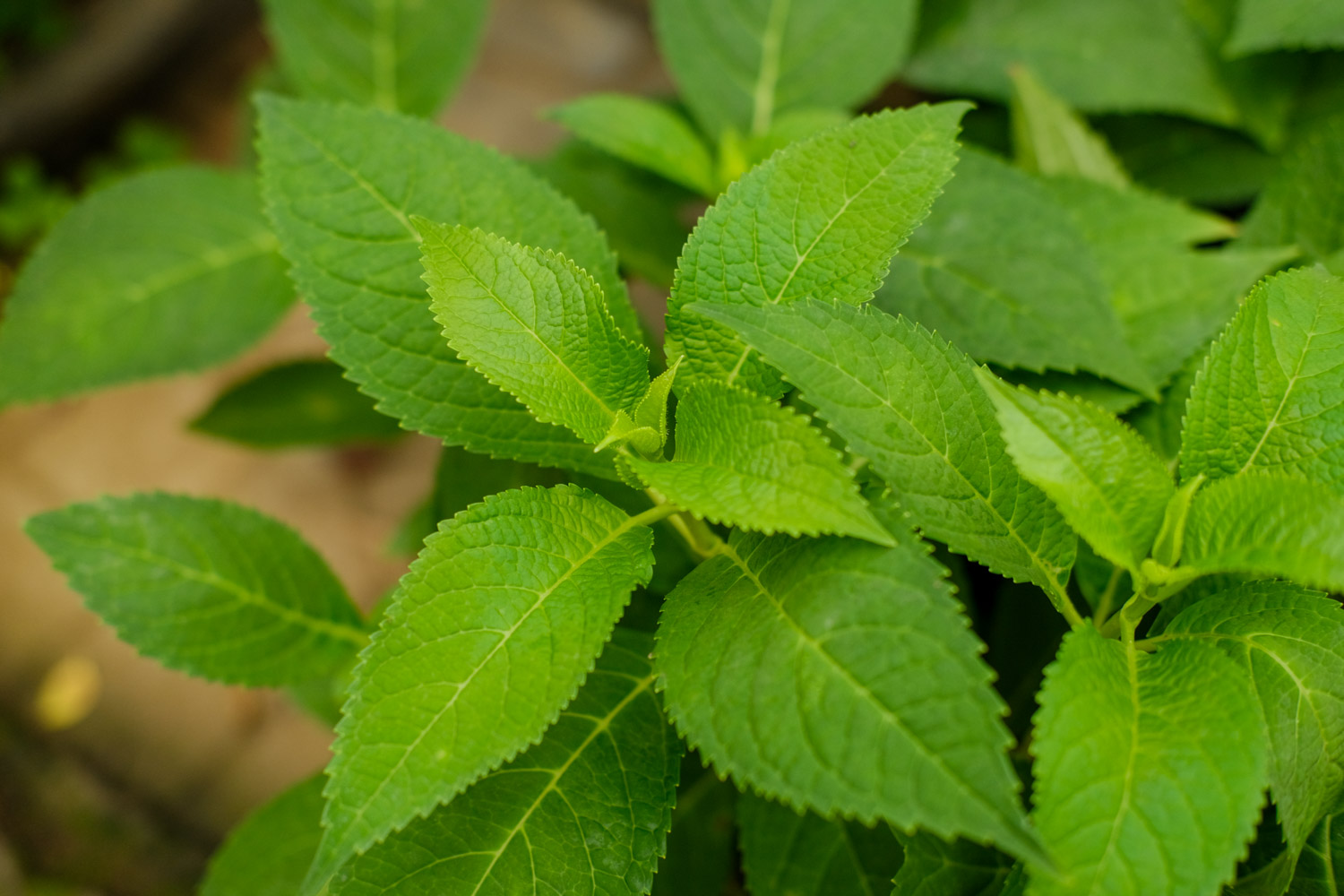1. Select branches
Before cutting, the residual flowers on Hydrangea branches should be cut off. Then select the semi lignified branch of the current year and cut it off from the plant with sterilized scissors
After that, a second pruning shall be carried out. Two leaves and one bud point shall be reserved on each branch, and the other leaves shall be cut off. Then cut the lower end of the branch 45 ° obliquely to facilitate its rooting
In order to prevent the leaf from consuming too much nutrition, you can cut off half of its leaves. After cutting, put it in a cool and ventilated place. After the wound is dried, you can cut it. If you are worried that the branches are difficult to take root, you can use rooting powder to deal with it slightly

2. Cutting method
Select the loose and breathable culture soil, water it once, and wet the whole soil. Then use a chopstick to poke several holes in the soil that needs cutting, put the treated branches in, and then compact the branches with soil. Finally, spray a little water on the soil surface with a watering can and put it in a cool and ventilated place

3. Precautions
① When cutting, it is best to reduce Hydrangea leaves by half, which can not only avoid evaporation, but also avoid excessive nutrient consumption. The remaining leaves can also carry out photosynthesis well
② If the cuttage Hydrangea begins to wilt, it may be caused by the relatively dry soil, which needs to be watered in time; If its leaves and stems start to turn black, it may be because of too much watering and need to reduce watering
③ Now the weather is hot, and the branches can take root in 2-3 weeks. You can gently pull the branch upward. If you can feel obvious resistance, it indicates that it has taken root. After rooting, it can be transplanted into a large basin


 how many times do yo...
how many times do yo... how many planted tre...
how many planted tre... how many pine trees ...
how many pine trees ... how many pecan trees...
how many pecan trees... how many plants comp...
how many plants comp... how many plants can ...
how many plants can ... how many plants and ...
how many plants and ... how many pepper plan...
how many pepper plan...





























